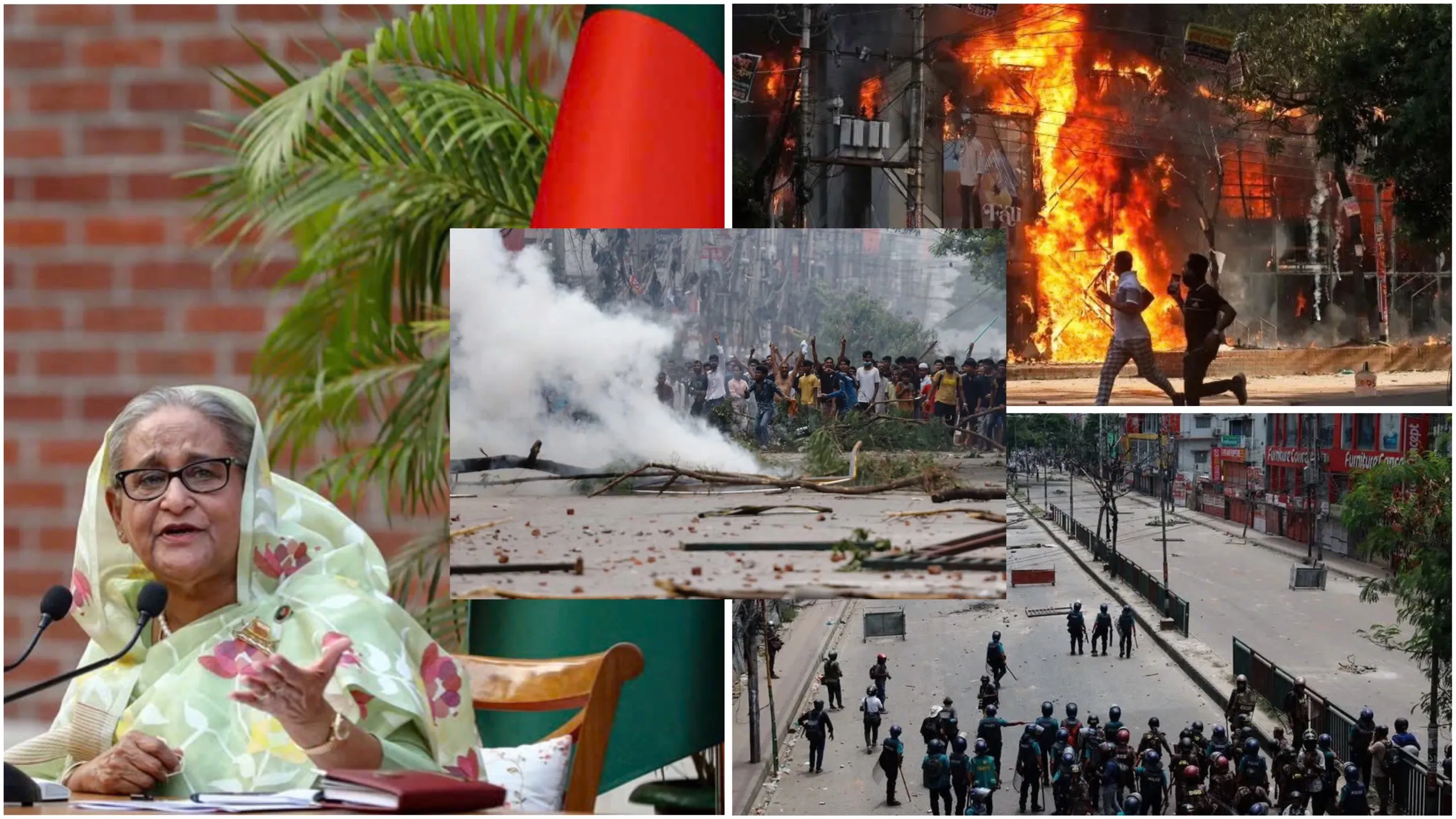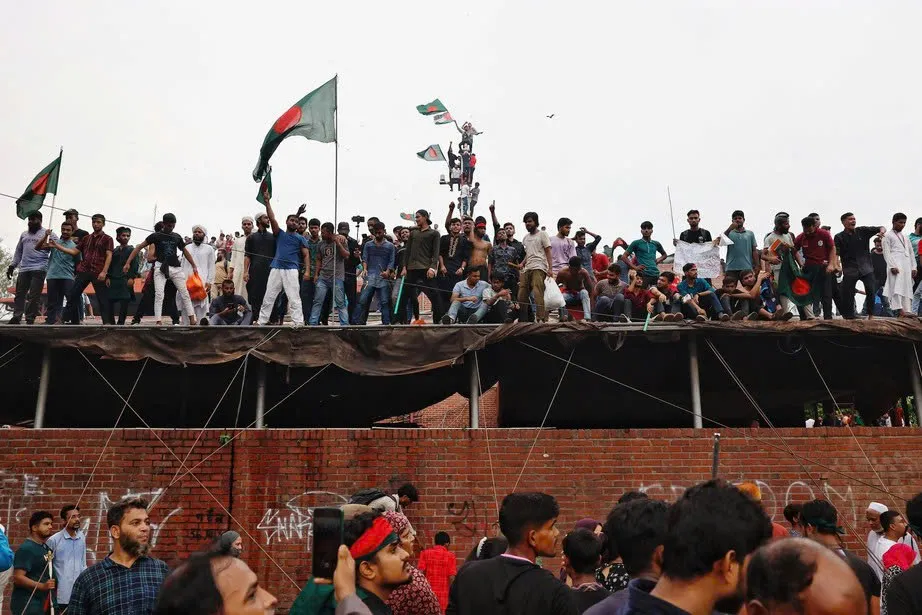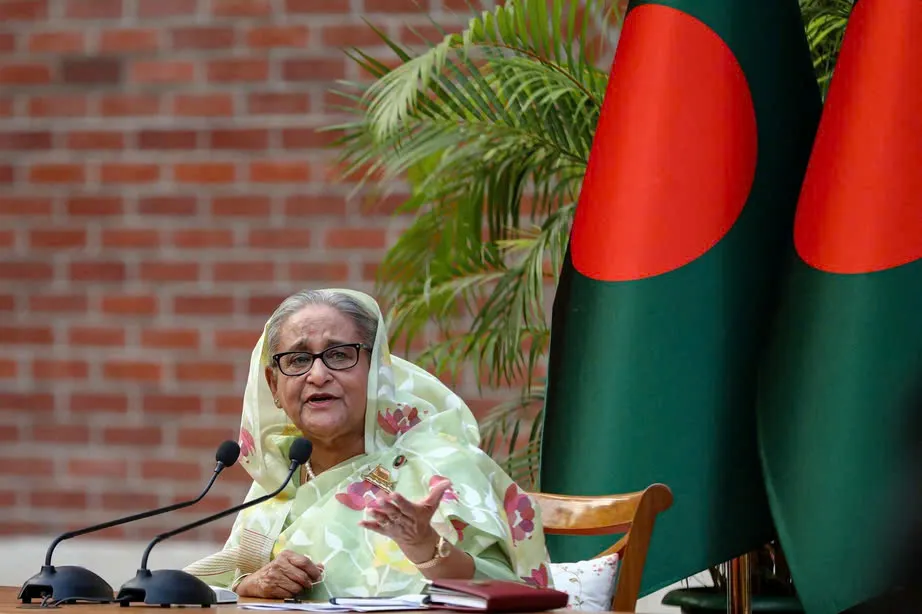
Continuing the tense development of the protest movement in Bangladesh, key leaders have issued an ultimatum demanding that the Government must dissolve the assembly before 3pm on August 6 (local time). These calls seem to fan the flames of determination of the protesters, creating an atmosphere of unprecedented tension.

Ultimatum
On August 6, Mr. Nahid Islam, one of the key leaders of the movement against the government of Ms. Hasina, said that the National Assembly must be dissolved before 3pm on August 6 (local time).
Protest leaders also called on students to be ready for a revolution if the request to dissolve the National Assembly is not implemented.
At the same time, protesters want Mr. Muhammad Yunus, a Nobel Peace Prize winner, to become the chief advisor to the interim government of Bangladesh. A spokesman representing Mr. Yunus said he agreed to the above request.
“Any government other than the one we propose will not be accepted. We will not accept any government supported or led by the military,” Islam said.
Muhammad Yunus, 84, won the Nobel Peace Prize in 2006 for his efforts to lift millions out of poverty by providing small loans of less than $100 to the poor in rural Bangladesh.
However, in June, he was indicted by a court in the country on charges of embezzlement. He has denied the charges.
Former Bangladeshi Prime Minister Seeks Asylum in UK: An Escape from Crisis

Ms. Hasina is seeking asylum in Britain with her sister. (Photo: Reuters)
According to India’s NDTV news agency, regarding former Bangladeshi Prime Minister Sheikh Hasina, the Indian government has granted temporary asylum to Sheikh Hasina after she resigned and fled the country amid a wave of violent protests. This highlights the complexity and importance of the current political situation in Bangladesh.
Hasina’s stay in India was only approved temporarily while the former Prime Minister waited to move to London (UK) with her sister, Rehana, who has British citizenship.
She is currently seeking asylum in the UK. However, NDTV news agency reported that the British Government has not yet confirmed granting political asylum to the former Prime Minister of Bangladesh.
Previously, on August 5, Bangladeshi Prime Minister Sheikh Hasina resigned, immediately boarded a helicopter with her sister and left the country, heading to India as the death toll in violent protests continued to escalate.
India’s National Security Advisor, Ajit Doval, met with Sheikh Hasina as soon as she landed in India, but he did not reveal the length of her stay or the former Prime Minister’s future plans.
Meanwhile, the situation in Bangladesh has become increasingly tense, as the country has been engulfed in weeks of violent protests sparked by students’ fierce opposition to the Hasina government’s controversial civil service quota policy.
On August 5, General Waker-Uz-Zaman, Commander-in-Chief of the Bangladesh Army, made a surprise announcement on national television that Hasina would resign and that the country would form an interim government.
“I promise you all, we will deliver justice. You have faith in the army. I take full responsibility, I promise you all,” he said.
The general called on the people to firmly say no to violence, restore peace and give authorities more time to work together to find solutions to the country’s pressing problems. He stressed that unity and cooperation are the key to overcoming the crisis and building a brighter future.
Meanwhile, Indian government sources said New Delhi is closely monitoring the complex developments in Dhaka, Bangladesh.
Prime Minister Sheikh Hasina’s controversial policy has reserved up to 30% of state jobs for relatives of soldiers who fought in the struggle for independence from Pakistan. Meanwhile, another 26% of positions are allocated to women, people with disabilities and ethnic minorities. As a result, only about 3,000 positions are left for the more than 400,000 graduates competing for the civil service exam, in a context where Bangladesh is facing high unemployment among the youth.
Bangladeshi youth have criticized the policy, saying it is discriminatory and only benefits Hasina’s supporters after she was re-elected in early 2024. They have called on the government to adopt a merit-based recruitment policy, rather than one based on political connections. The situation has worsened as violent protests have taken place across the country, killing at least 250 people. The violence peaked on August 4, when a record death toll reached nearly 100, including 13 police officers.



